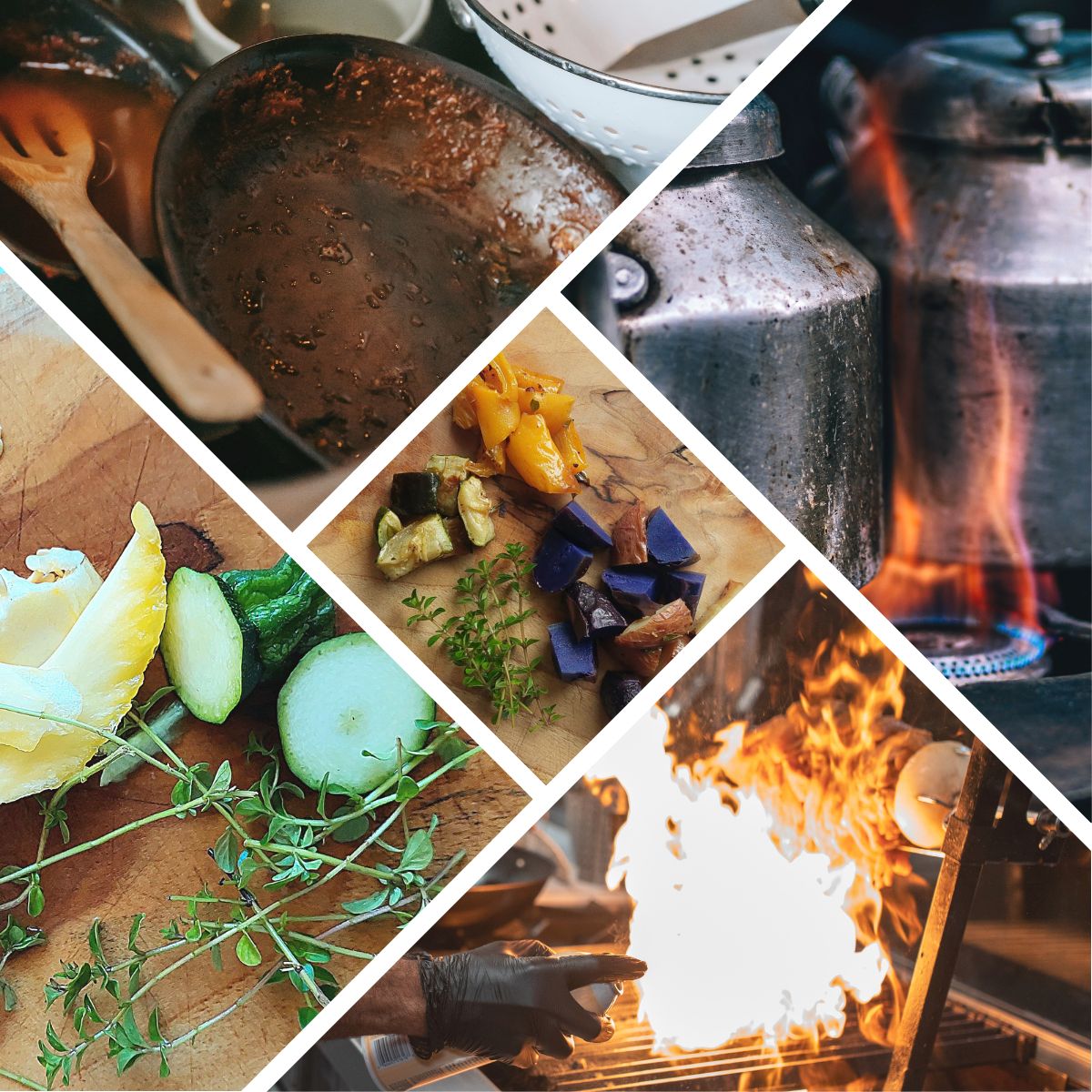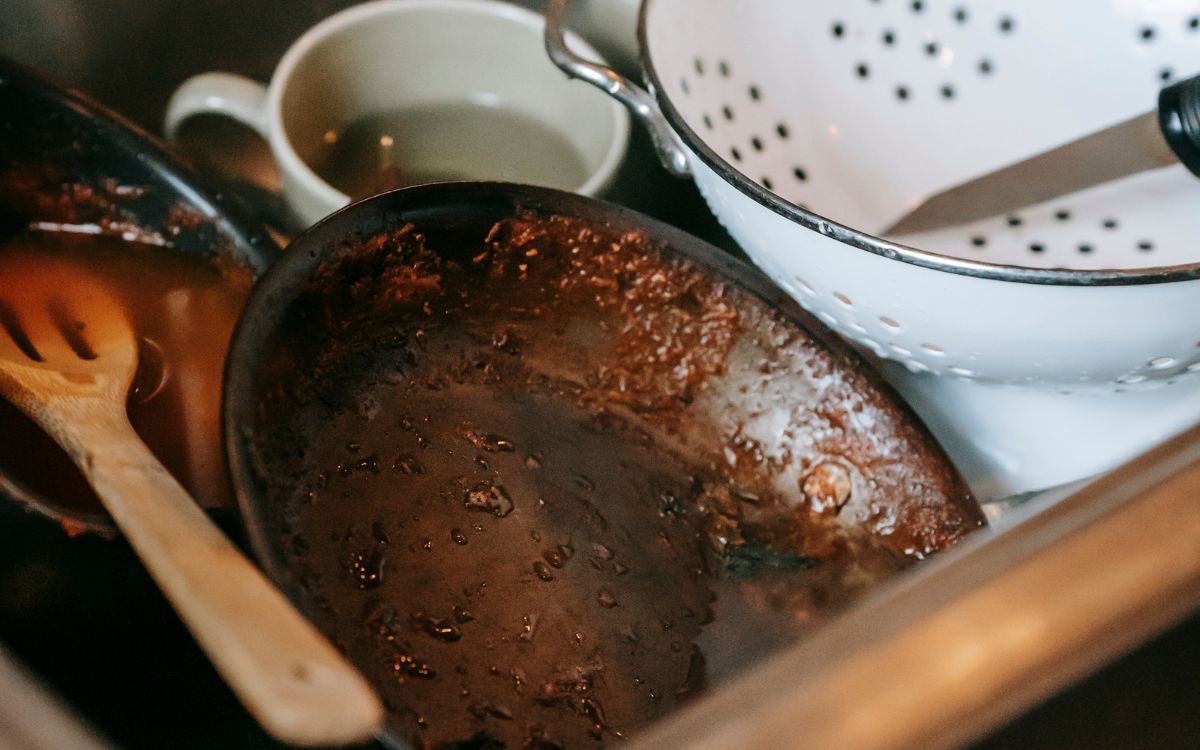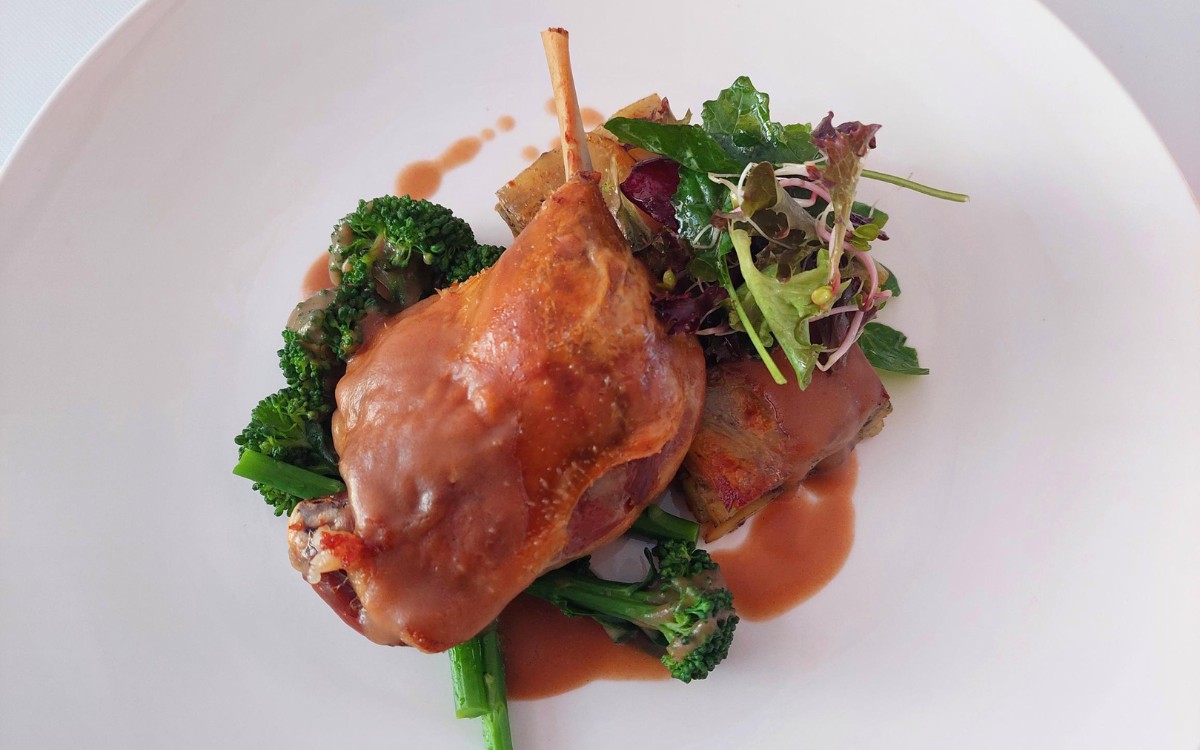Privacy Policy | Terms and Conditions | Disclosure Statement | License Policy
COPYRIGHT © 2024 | NUMBER 8 COOKING | ALL RIGHTS RESERVED.

Privacy Policy | Terms and Conditions | Disclosure Statement | License Policy
COPYRIGHT © 2024 | NUMBER 8 COOKING | ALL RIGHTS RESERVED.

Privacy Policy | Terms and Conditions | Disclosure Statement | License Policy
COPYRIGHT © 2024 | NUMBER 8 COOKING | ALL RIGHTS RESERVED.
We’ve all been there before – coming back from culinary failure. You’ve just survived the worst service you’ve ever done. Or disaster strikes. Maybe the soufflé collapsed unexpectedly. Perhaps the hollandaise sauce curdled beyond repair. Or the Beef Wellington emerged disastrously overdone.
Whatever the culinary catastrophe may be, these cooking failures can feel deflating and embarrassing. This makes you question your skills in the kitchen.
In the aftermath, it’s easy to feel dejected and tempted to abandon cooking altogether. But while mistakes in the kitchen can sting in the moment, culinary failure can also be a fantastic teacher.
They also impart invaluable lessons if we have the wisdom to receive them. With the right mindset, even the most demoralizing cooking failures contain the seeds of future accomplishment and growth.

One of my biggest culinary failures. I was only two years out of culinary school and a cook in a busy large restaurant. I was offered the Head Chef role because I was the only qualified cook in the kitchen. I eagerly accepted the position; what a mistake, I wasn’t ready.
I wrote a new menu with very little recipe development. Things started to go wrong from the first day the menu went live. The dishes were too complex, resulting in food slowly leaving the kitchen. Some dishes had 5 or 6 movements, so platting was time-consuming.
Diners were waiting too long for meals, the waitstaff and the kitchen were stressed, and they all looked to me for answers. The daily prep was massive, and the kitchen couldn’t keep up. This resulted in dishes constantly being 86’ed.
This continued for six months until the owner and I parted ways. I left in total shame and embracement.
What I learned from this is skill and knowledge are powerful tools. So, over the next five years, I worked in some of the top restaurants in Auckland, honing my skills and widening my culinary knowledge.
Now, decades later, I’ve held group and executive chef roles with large national hospitality groups. My skillset and knowledge base are broad; I’m fast with a chef’s knife and can smash out a prep list in a few hours.
These days, when I hit an occasional stumbling block in the kitchen, I can step back, reassess, and recover my equilibrium much faster. That ability emerged only after I stopped treating setbacks as indictments of my essential skills.
I learned to uncouple my self-worth from the flawless execution of culinary techniques and recipes. Excellence became about the quality of my effort and engagement, not narrowly focused on perfectionism.
Ironically, as I detached emotionally from success-versus-failure thinking, my cooking improved dramatically. Unburdened by the weight of performance anxiety, and fear of culinary failure I could take risks and remained open to learning.
Culinary failure — Curious experimentation replaced playing it safe. Consequently, my repertoire broadened, my creativity blossomed, and my technique sharpened. The fear of mistakes no longer loomed as a deterrent. Surprisingly, the less I obsessed about failure while cooking, the more innovation took place.
Chefs Pro Tip — Cooking is all about creativity and experimentation. Some of the most iconic dishes in culinary history were born out of accidents or bold experimentation. Remember, there are no strict rules when creating recipes and dishes, only guidelines.
So, don’t hesitate to try new ingredients, techniques, or flavor combinations. Sure, only some experiments will be a resounding success. But each culinary failure brings you one step closer to culinary mastery.

Bouncing back from culinary failure also relies on cultivating patience with the process of growth. Deliberately applying persistence, and dealing kindly with ourselves in moments of difficulty.
Learning to prepare even seemingly simple dishes like cooking steaks or shrimp rarely follows a linear path. Plateaus and backward slides commonly arise amid forward progress.
When we experience setbacks along our culinary journey, the most constructive response involves self-compassion rather than berating ourselves.
Recall times you offered understanding to a cook just starting. Extend that same grace towards your effort. Remember that missteps fade, skills develop, and you build recipe mastery over time.
This is done through sustained obsessive engagement. Momentary frustrations and disappointments will give way to skill and competency.

In retrospect, the mistakes I made decades back, though unpleasant. Now, gave rise to more joyful expansion and opportunity than the dishes I nailed perfectly on the first take.
The greatest chefs view failures as a package deal with innovation. Culinary failures are painful lessons, but a fantastic teacher. After any kitchen catastrophe, rather than self-blame, reflect on this:
Culinary failure — Approach difficulties as a learning opportunity in this manner broadens perspective and knowledge for the long haul. It transforms a supposedly “failed” outcome into an engine of wisdom.
Perfectionism manifests as an unwillingness to attempt anything unless success is guaranteed. Aspiring cooks trap themselves in their comfort zones, endlessly recycling the same recipes requiring no risk or new skills.
Culinary failure — Minor setbacks feel utterly devastating for perfectionists rather than providing constructive feedback to tweak approaches. This mentality also fuels procrastination, with elaborate meals never attempted for fear of falling short of expectations.
While allowing yourself to make cooking mistakes, some patterns compromise long term development if left unchecked.
So, the next time catastrophe strikes in the kitchen, remember that while the sting of disappointment feels unpleasant, you also hold an incredible opportunity. Leaning into those uncomfortable moments sparks growth.
Use the experience to build judgment, power, and self-knowledge over the long term. With time and sustained effort, fluency develops.
Recall that the legends of the culinary realm also endured their fair share of past flops, fiascos, and culinary failure before ascending into excellence.
Let kitchen mistakes serve as your most illuminating instructor rather than an obstacle. Ultimately, culinary failure is the ultimate teacher, opening gateways to future triumph.
Cooking is a science and a skill that requires a deep understanding of both the technical and creative aspects. Cooking is also a matter of precise measurements and ratios.
For example, baking is particularly sensitive to accurate measurements and temperatures. A slight deviation in the amount of an ingredient or cooking degrees can result in a completely different outcome. So, to help you, here is a handy little unit converter tool for cooking without guesswork.